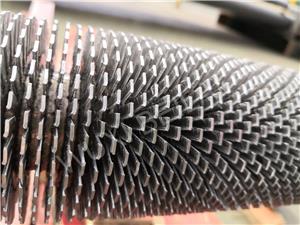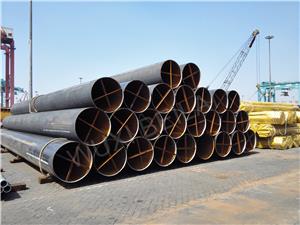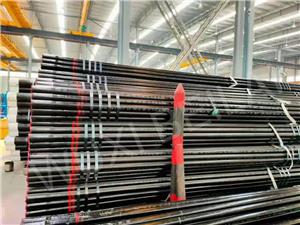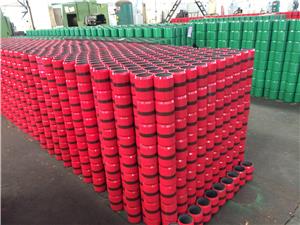¿Se pueden alear los tubos de acero magnético? Por los expertos en tubos de acero aleado de BEILAI
Alloy steel tubes play an important role in industrial materials and engineering for a wide range of oil and gas, water transport and structural applications, and are known for their durability, strength and versatility.In recent years, attention has turned to integrating different metal properties to optimise performance, and one of the most common questions is: can magnetic steel tubes be alloyed?The experts at Belle Alloy Steel Pipe have the answer.
To answer this question effectively, we first need to clarify what dddhhhmagnetic steel pipedddhhh refers to. Magnetic steel typically refers to steel that exhibits magnetic properties, which are usually associated with its iron content. Pure iron and its alloys, especially those with high carbon content, tend to be ferromagnetic—meaning they are attracted to magnetic fields and can be magnetized themselves.
In the context of steel pipes, magnetic properties are not always the desired trait. In some applications, steel pipes may require non-magnetic properties, especially in industries like electronics, medical devices, or where corrosion resistance and strength are more important than magnetism. On the other hand, magnetic steel pipes are specifically used in applications that require ferromagnetic materials for certain functions, such as in the manufacturing of sensors, transformers, and electromagnetic components.
The Role of Alloys in Steel Pipes
Steel itself is an alloy of iron, with carbon being the primary alloying element. The properties of steel can be dramatically altered by adding different alloying elements, such as chromium, nickel, molybdenum, and vanadium. These elements enhance various characteristics of the steel, including its strength, corrosion resistance, hardness, and sometimes its magnetic properties.
Alloy steel pipes, by definition, are pipes made from steel that has been alloyed with various elements to achieve specific properties for a given application. For example, stainless steel pipes, which are typically alloyed with chromium and nickel, offer excellent corrosion resistance, making them ideal for applications in corrosive environments.
So, can magnetic steel pipe be alloyed? The answer is nuanced and requires a closer look at how alloys can influence the magnetic characteristics of steel.
Magnetic Steel and Its Composition
Ferromagnetic steels, like carbon steel, are attracted to magnets because of their atomic structure. The iron atoms in ferromagnetic materials align their magnetic moments in the same direction when exposed to a magnetic field, creating a net magnetization. However, the magnetic properties of steel can change depending on the elements that are alloyed with it.
1. Carbon – The most significant alloying element in steel, carbon increases hardness but also tends to promote magnetism in the steel.
2. Chromium – While primarily used to enhance corrosion resistance, chromium can reduce the magnetic properties of steel when present in large amounts.
3. Nickel – Nickel is often added to steel to improve toughness and resistance to corrosion. It can also reduce the magnetic properties of steel, though the effect depends on the amount used.
4. Manganese – Manganese improves toughness and hardenability and can influence the magnetic properties depending on its concentration.
5. Molybdenum – Molybdenum increases the strength and resistance to wear, but it also tends to reduce the magnetic properties of steel.
When alloying elements like nickel and chromium are added in large amounts, they can reduce the ferromagnetic properties of the steel. This is why materials like stainless steel, which contain significant amounts of chromium and nickel, are often non-magnetic or only weakly magnetic.
Can Alloying Steel Increase or Decrease Its Magnetism?
The process of alloying can either increase or decrease the magnetic properties of steel, depending on the specific elements involved and their concentrations.
- Increasing Magnetism: If the goal is to increase the magnetic properties of the steel, the alloying elements would typically be limited to elements that do not interfere with ferromagnetic properties, such as carbon and iron. For example, certain high-carbon steels remain highly magnetic because the carbon content does not significantly affect the iron's ability to magnetize.
- Decreasing Magnetism: On the other hand, if the goal is to decrease the magnetic properties, a steel alloy with higher amounts of chromium or nickel may be used. Stainless steels, for instance, may contain up to 30% chromium and 9% nickel, which reduces their magnetic permeability to the point where they may be considered non-magnetic, especially in their austenitic forms.
In the case of alloy steel pipes, the choice of alloying elements is made based on the desired combination of strength, corrosion resistance, and magnetism. For example, a steel alloy pipe that will be used in a non-magnetic application might include higher amounts of chromium and nickel, while a pipe intended for use in an electromagnet might be alloyed with a higher concentration of iron and carbon to ensure strong magnetic properties.
Challenges and Considerations in Alloying Magnetic Steel Pipes
One of the main challenges in alloying magnetic steel pipes is balancing the need for specific mechanical properties with the desired magnetic characteristics. Alloying elements that improve corrosion resistance, toughness, or heat resistance might alter the steel’s magnetic properties, which can be either beneficial or detrimental depending on the intended application.
Additionally, the manufacturing process itself plays a role in determining the final magnetic properties of steel pipes. Heat treatments, such as annealing, can modify the microstructure of the steel, affecting its magnetism. In some cases, pipes may need to undergo specific processes to optimize their magnetic properties, depending on their alloy composition.
In conclusion, alloy steel pipes can indeed be magnetic, but the degree of magnetism largely depends on the alloying elements used. The magnetic properties of steel can be modified by adjusting the composition of the steel, particularly by varying the amounts of elements like carbon, chromium, and nickel. Alloying can either enhance or reduce the magnetic characteristics of steel, and understanding the relationship between these factors is critical when selecting materials for specific applications.
At BEILAI, we specialize in alloy steel pipes for a wide range of industries. Whether you need pipes for high-strength applications, corrosion resistance, or specific magnetic requirements, we have the expertise to provide solutions that meet your needs. For more information on our alloy steel pipes and to consult with our experts, feel free to reach out to BEILAI today.




